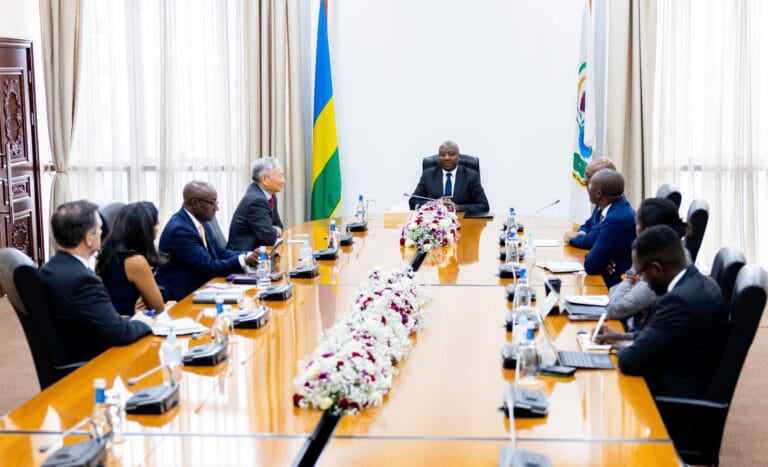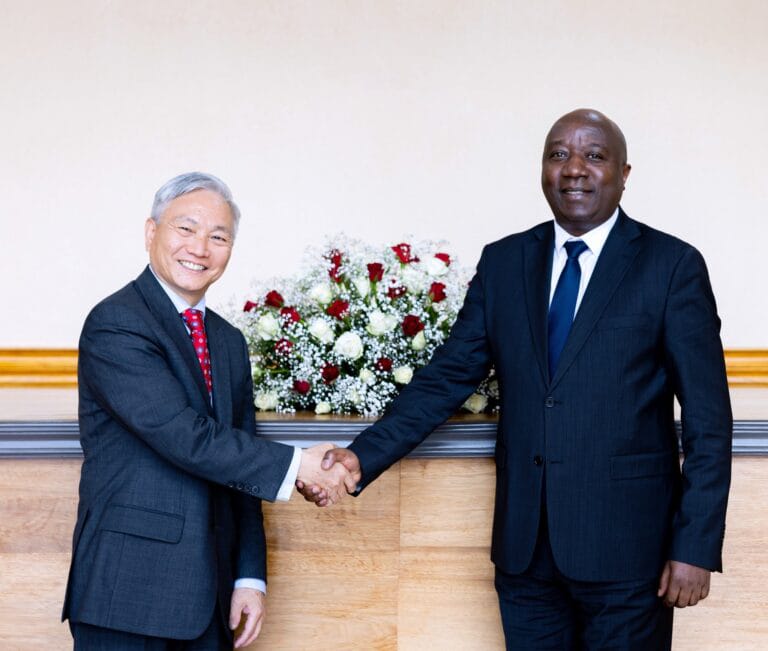The World Bank has reaffirmed its commitment to supporting Rwanda’s development during a vital meeting held on October 2, 2024, between Prime Minister Dr. Edouard Ngirente and Qimiao Fan, the World Bank’s representative for Rwanda, Somalia, Kenya, and Uganda. This meeting marks a significant step in solidifying the cooperation between Rwanda and the World Bank, as both parties bandied strategies to enhance collaboration in the face of ongoing global and indigenous challenges.
The conversations were centered on strengthening ties and outlining colorful development systems that will be incorporated into Rwanda’s forthcoming five- time development plan. One of the focal points of these conversations was job creation for the youth, an issue of consummate significance in a country where a significant proportion of the population is youthful. Minister of Finance and Planning, Yusuf Murangwa, underlined the necessity of enterprise aimed at empowering youthful people and equipping them with the chops demanded to thrive in a fleetly evolving job request.
In his reflections, Qimiao Fan praised Rwanda’s emotional progress over recent times and reaffirmed the World Bank’s readiness to support systems that emphasize sustainable structure investment. He stated,” We’ve supported Rwanda in multitudinous ways, and moving forward, we will concentrate on sustainable development across education, health, and overall well- being.” This commitment reflects the World Bank’s broader strategy of promoting sustainability in developing nations, feting that long- term growth hinges on investments that profit both the frugality and the terrain.
The Rwandan government has conceded the significant achievements performing from once collaborations with the World Bank. For case, one of the most notable accomplishments was the construction of over 22,000 classrooms in 2020, which has been necessary in perfecting access to education across the country. similar enterprise not only enhance educational structure but also contribute to social cohesion and community development, empowering families and individualities to pursue better futures.
The cooperation between Rwanda and the World Bank has gauged an emotional 61 times, a testament to the trust and collective understanding that have developed over time. During this period, the World Bank has played a pivotal part in Rwanda’s reconditioning sweats following the ruinous 1994 Genocide against the Tutsi. The support has been multifaceted, encompassing fiscal aid, specialized moxie, and strategic planning, all aimed at fostering recovery and growth in a nation that has faced considerable challenges.

Rwanda’s recent development line has garnered transnational attention, with colorful stakeholders feting the country as a model for metamorphosis in Africa. The government’s focus on Vision 2050, which aims to make Rwanda a high- income country by the middle of the century, aligns with the World Bank’s pretensions of promoting inclusive and sustainable growth. The emphasis on job creation, particularly for the youth, is a critical element of this vision, as it seeks to harness the demographic tip while addressing the challenges of severance and underemployment.
In addition to job creation, the conversations stressed the significance of investing in education and health, two sectors that are foundational for sustainable development. perfecting access to quality education equips the pool with the necessary chops to contend in a global frugality, while investments in health insure a productive crowd. The World Bank’s commitment to these areas aligns with Rwanda’s ongoing sweats to enhance its mortal capital and ameliorate overall quality of life for its citizens.
likewise, the meeting between Prime Minister Ngirente and Qimiao Fan comes at a time when the global profitable geography is evolving, marked by challenges similar as climate change, profitable difference, and the impacts of the COVID- 19 epidemic. As Rwanda navigates these complications, the support of transnational mates like the World Bank becomes indeed more pivotal. cooperative sweats aimed at fostering adaptability and rigidity will be crucial to icing that Rwanda can repel external shocks and continue on its path toward sustainable development.
The government of Rwanda has expressed its gratefulness for the longstanding cooperation with the World Bank, emphasizing that the collaboration has yielded palpable benefits for the population. This sentiment reflects a broader appreciation for transnational cooperation in addressing pressing development issues. As Rwanda continues to apply ambitious systems and programs, the part of the World Bank in furnishing the necessary fiscal and specialized support will be essential in achieving these pretensions.
The reaffirmation of commitment from the World Bank during the recent meeting signifies a continued cooperation that will play a pivotal part in shaping Rwanda’s development narrative. With a focus on job creation for youth, sustainable structure, and advancements in education and health, both the Rwandan government and the World Bank are poised to attack the challenges ahead. As they work together to apply the forthcoming five- time plan, the vision for a prosperous and flexible Rwanda remains forcefully in sight, emphasizing the significance of collaboration in fostering meaningful change. The ongoing dialogue between these realities will really pave the way for innovative results and transformative systems that will profit the Rwandan crowd for generations to come.




